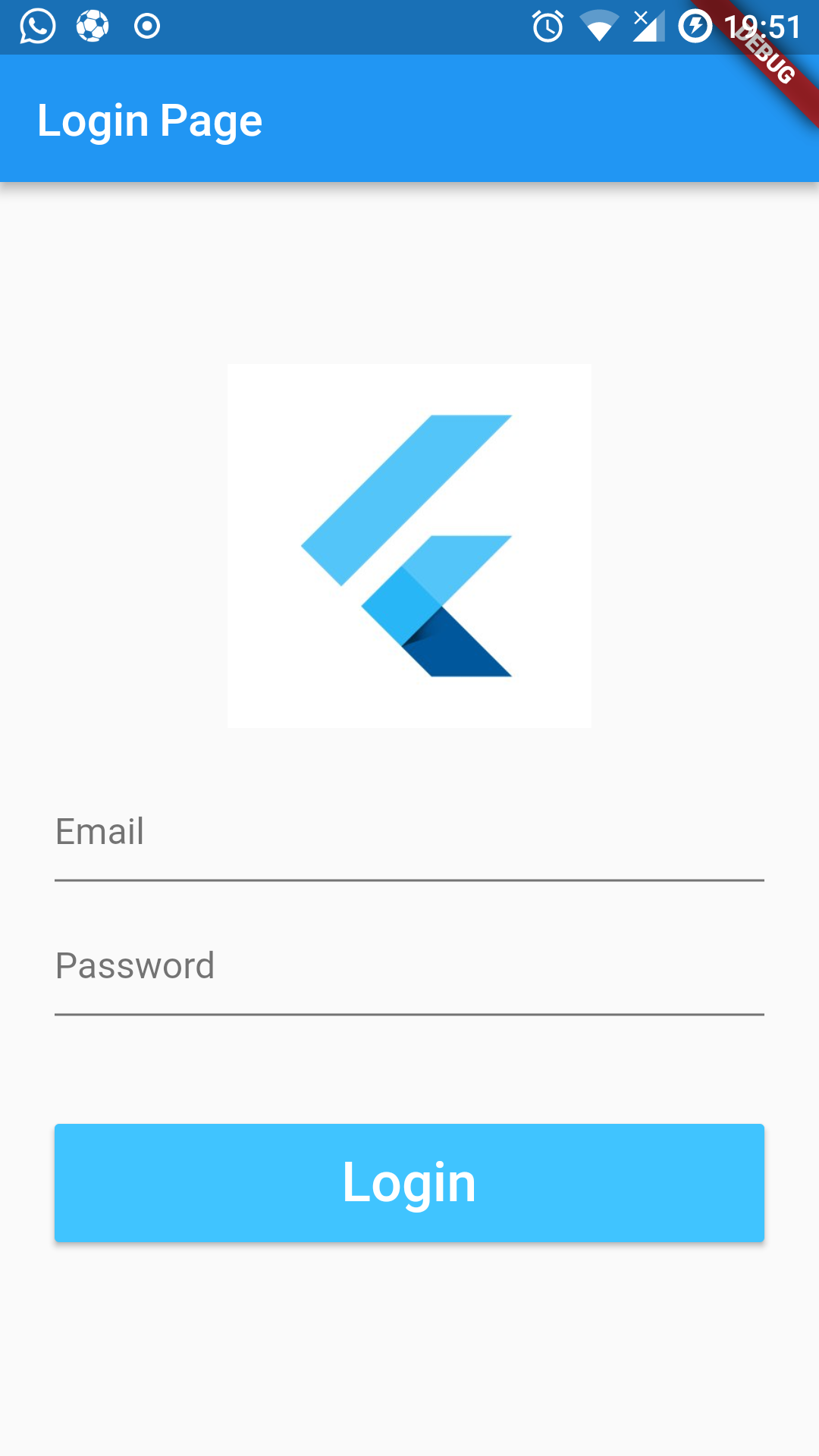Not many summer programs out there for tertiary students take such a deep nose dive like the Tech Leads Ghana summer program did.
Unlike many where participating students continue with the usual ‘academic’, ‘book-long’ way of approaching education, the Tech Leads Summer Program took a very practical twist.
It can be rightly said the experience gained throughout the program was more than enough
I share the amazing experience I had in the short summer program organized by Tech Leads Ghana in collaboration with IoT in Africa.
The Program
The Tech Leads Ghana 2017 Summer Program, was designed to accelerate participants a learning and practical experience in the fields of Computing, Networking and Internet of Things (IoT).
This year’s program was held at the Koforidua Technical University in Koforidua, at the Computer Laboratory 1 of the institution.
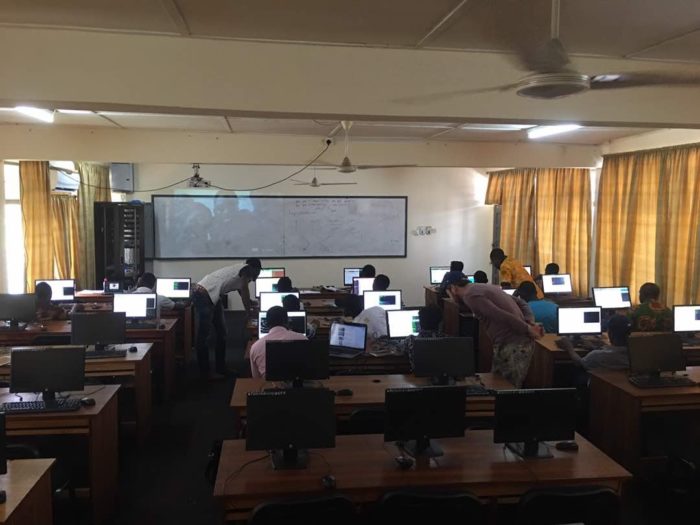
As part of the course, we started with the basics of Python, then through to a bit of intermediate level, computing and networking fundamentals using the Raspberry Pi, and IoT programming using programmableweb and the particle IoT platform.
We had loads of fun, got the chance to interact with industry experts, and built some cool projects!
Practical Education
With the entire program course outline tailored to practical skills, students passed through the summer program with actual skills, worth applying in the real world.
Week one introduced students to the needed toolset in the life of a typical Linux users. The introduction to Linux and the Raspberry Pi set the groundwork ready for the ensuing weeks.
Did You Know?
Every student of the Tech Leads Ghana 2017 Summer Program in collaboration with IoT in Africa took home a Raspberry Pi Model 3, a 16 Gig SD Card, a micro USB charger brick and cable, a breadboard and an HDMI cable.
Priceless gift! A big thank you to Sam.
As much as I had seen a Raspberry Pi sometime past, this was an opportunity to get hands-on experience with this little computer. And hands-on I did get.
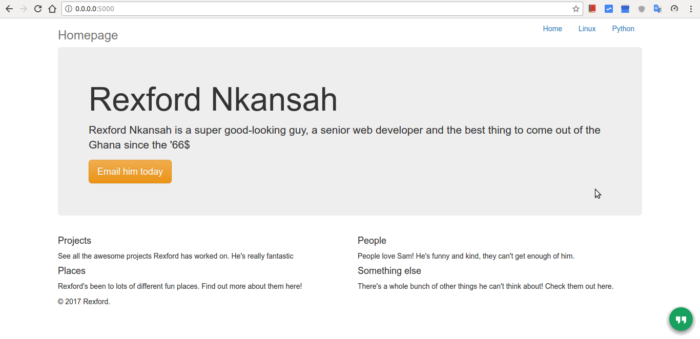
Although I had played with Flask in time past (for a job interview), getting myself dirty again in the project using Flask was a welcoming refresher. Deploying the application on Heroku also a good timely reminder.
In my early days, before switching to DigitalOcean full-time, Heroku was my go-to for my applications. Trying Heroku recently, I could appreciate a ton of changes on the platform. New features, a much better-looking interface, fast, and sweet to work with.
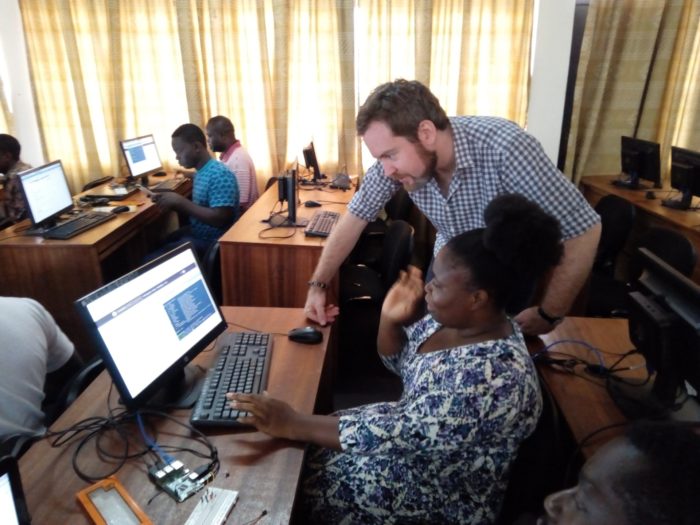
Git and Github become a sensation among the students. ‘git add’, ‘git commit’, and ‘git push’ probably will be the last item any student of the summer program would forget.
To view all the pictures of the program, follow this link
As much as I’ve used Git and Github for a huge section of my web development career, it never occurred to me using the Git as a tool and Github as a platform could turn into a hit. Obviously, the interest and joy of using the tool and platform stemmed from the fact that the students had embraced and appreciated their use.
Check out Rotovegas’ Github for some of his projects related to the Summer program
Python with Raspberry Pi
from gpiozero import LED, PWMLED, Button from time import sleep from signal import pause led = LED(17) button = Button(2) #led = PWMLED(17) #def blink(): # while True: # led.on() # sleep(5) # led.off() # sleep(1) button.when_pressed = led.blink button.when_released = led.off pause()
Controlling an LED with a button press through the Raspberry Pi General-purpose input/output (GPIO) pins with the above code was fun.
As the LED goes on, the endless possibilities achievable with the Raspberry Pi kept popping up our heads. Each nod by a student meant a light bulb in their mind came on. The experience was engaging and fun.
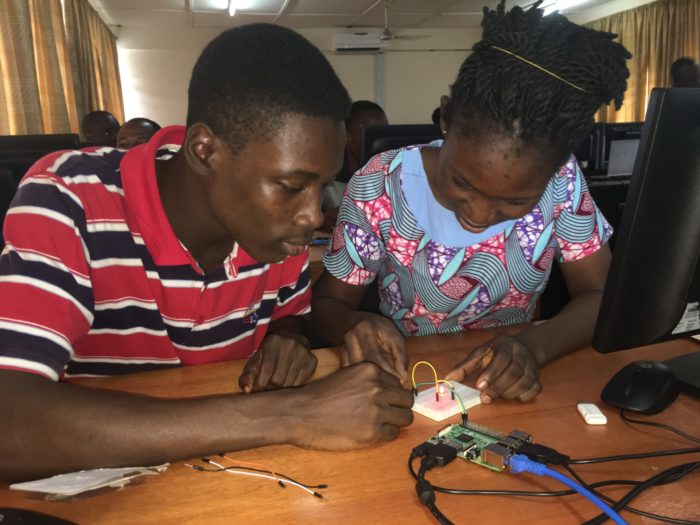
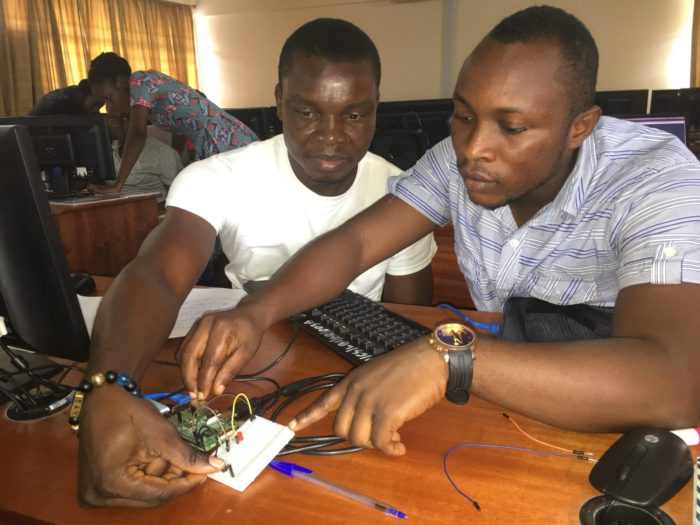
Writing basic Python code to turn our idea (turn on a light bulb by button press) into reality (light actually turned on) was priceless. As trivial as it seemed, the feeling and joy such an experience carried were more than words could describe.
Our understanding of the use of the breadboard meant we could build complex circuits using different sensors to achieve varied results. A firm grasp of the fundamentals was all that was needed, and the ideas started flowing.
IFTTT
Throwing in the If This Then That event triggers, in combination with our Raspberry Pi functionality, we could get emails to send after a button press. Think of a panic button for your shop. Or the panic ‘word’, where a sensor would pick up your voice, and trigger an event.
In short, our ideas run wild. The practical understanding meant, we all took home a strong appreciation for what tech could help us all achieve.
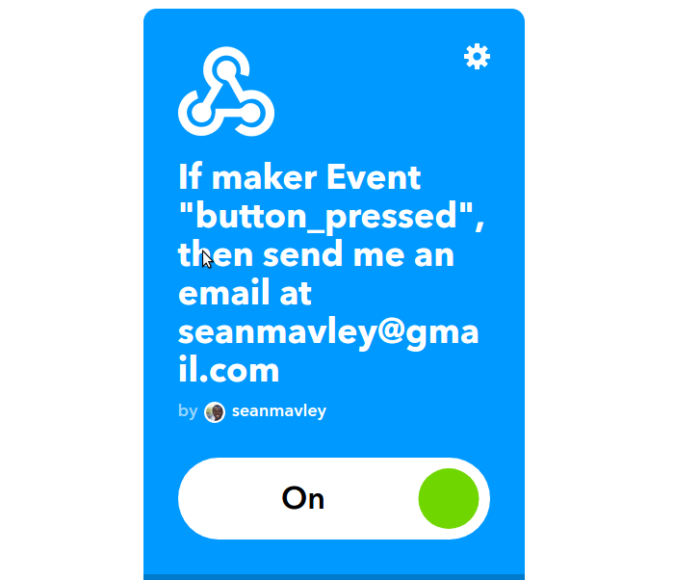
Tour
As part of the program, the students made a trip to two technology-related organizations in the country, namely Hubtel and Rancard. Both organizations are well-rooted in their various niches, they got to share what makes their products tick, and how they do it for the many years they’ve been running in the country.
The tour was to come in contact with experts who are working in the industry and get to chat with how they run and some of their tool sets.
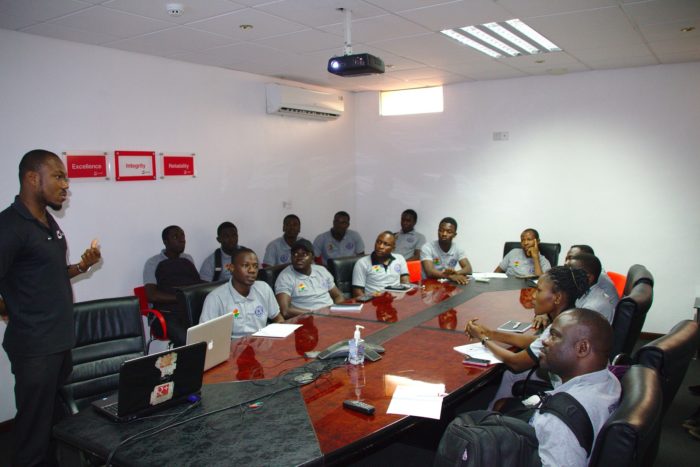
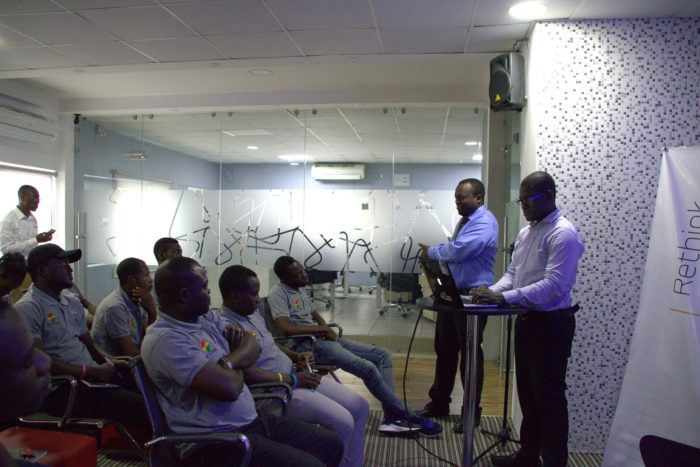
The Instructor
Sam Moorhouse, the instructor for the 3-week summer program is an industry expert experienced in working on real-world applications using battle-tested platforms and or tools in real-world organizations.
Although his experience and knowledge are deep, Sam’s teaching skills allow him to draw the students out into the bare open with simple-to-understand expressions and explanations. I personally enjoyed his lectures and hands-on assistance.
To learn more about Sam, check out his Github profile, where you can also find links to his works and more about him.
Sam Moorhouse Github: https://github.com/sammoorhouse
Conclusion
I hope to apply the skills learned in the course into other parts of my workflow as a web developer. Eventually, I hope to build simple IoT related applications to take full advantage of the potentials the Raspberry Pi offers.
Definitely, a similar program will run next year, and I hear not only at the Koforidua Technical University, however at two extra tertiary organizations.
It’ll be fun, even more! Until there, keep coding, and Pi-ing!
